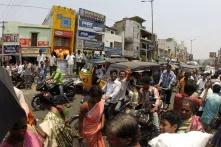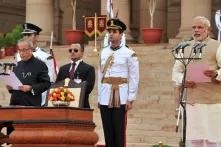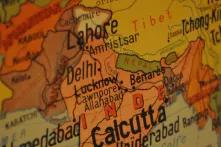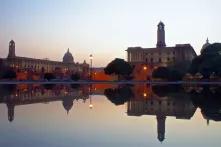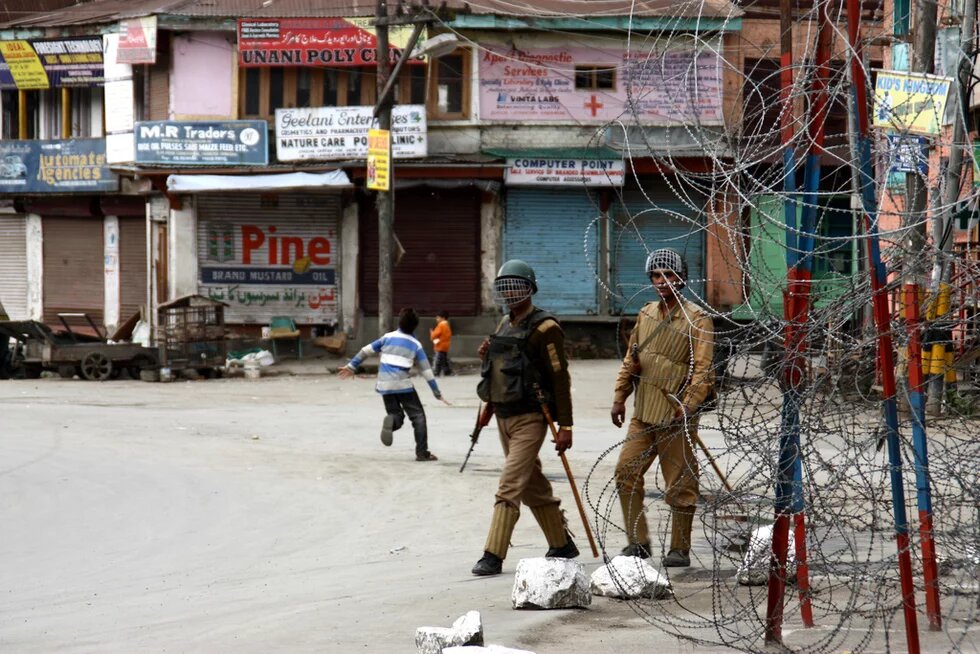
Avani Tewari is a 19 year old law student and blogger from New Delhi. In this web dossier she will be blogging her reflection on the main debates in the media after the elections and her personal impression of the political discussion every week.
Whenever a new government comes to power it has to resolve challenges, sometimes proactively and sometimes reactively. These challenges can vary both in terms of time frames as well as intensity. In other words, these could have existed for long periods like festering sores or could be of a new and recent vintage. For resolving challenges which have been pending for a number of years, most parties highlight them and also how they propose to resolve them in their election manifestos. It is, therefore, important that a party in its electoral campaign not only mentions about resolving or overcoming the pending challenge, but such a resolution should not go against the ethos on which a democratic government is formed. Similarly, if a hurdle emerges immediately after a new government is elected then the government must ensure that it resolves the controversy effectively so that the people do not lose trust in the government. Though hardly a month in power, the new government had to deal with challenges, some of its own making and some due to developments beyond its control.
Modi caught in Iraqs turmoil
The capture of some towns in Iraq, by the Sunni insurgent group ISIS, had its reverberations in India also and presented the first major foreign policy challenge to the government. Traditionally, large number of Indians are employed as expatriate workers in the Middle East and Gulf countries. Recently, 46 Indian nurses and 40 construction workers were taken captive by the ISIS in Tikrit and Mosul respectively. This created a furore with the families of the kidnapped Indians asking the government to intervene and seek their release. The Indian foreign ministry acted with alacrity by setting up a crisis management cell and dispatching its former Ambassador to Iraq, who is believed to have good contacts there. It also contacted its counterparts in the Gulf countries and various NGO’s to free the captured Indians. The Indian government also established high level contacts with countries like Syria, Turkey, and Jordan which border the ISIS territory. While the government was able to secure the release of the nurses, the construction workers continue to be in captivity.
The intervention of the Indian government has been viewed as the ‘first diplomatic victory of the Modi government.’[1] This diplomatic win was possible because of the efforts of the Indian government, which was reported to have revived ties with the Baathist (who had alliance with the ISIS) who played a major role in the return of the nurses. According to the Hindu,
“The safe return of 46 Indian nurses from Iraq is the result of astute diplomacy and a calibrated exercise of soft power by multiple agencies of government. While External Affairs Minister Sushma Swaraj engaged her counterparts at the political level in West Asia, including Foreign Ministers of the six oil-rich monarchies of the Gulf Cooperation Council, sound tactical leadership seemed to have been provided by Foreign Secretary Sujatha Singh and National Security Adviser Ajit Doval.”[2]
To me this appears to be a battle half won, because while the nurses have been released by their ISIS captors, the construction workers continue to be in captivity. The government has been unable to get them released until now and this will remain a foreign policy challenge till they are able to resolve the issue in its entirety.
The status of Jammu and Kashmir
Another challenge which the Modi government faces is the issue of Jammu and Kashmir, which has both an internal and external dimension. Within India there is a controversy regarding the special status given to J&K under Article 370 of the Indian Constitution. Article 370 provides ‘special autonomous status’ to J&K and except for matters relating to foreign affairs, defence, finance and communication all legislations passed in the centre need the approval of the state government to be valid in that state. Some parties and groups in India, including the BJP and RSS, oppose the special provisions granted by Article 370 to J&K. In its election manifest released before the general elections, the BJP had said that it would discuss the issue with all stakeholders and was committed to its abrogation.
After Narendra Modi was sworn in, a minister of state in the PM office Mr Jitendra Singh made a statement that the process of repealing Article 370 had begun. This led to immediate reactions and to a heated political debate between the opponents and proponents of the provision. J&K chief minister Omar Abdullah said that Article 370 was the only constitutional link between J&K and rest of India. “Long after Modi government is a distant memory, either J&K won’t be part of India or Art 370 will still exist,” Abdullah tweeted. The Minister, however, appeared to backtrack and clarified that the statement was just an initiation of a debate to repeal Article 370, which was mentioned in the BJP manifesto. The Hindu on resolving this debate says that,
“There is no doubt that there will have to be a debate on Jammu and Kashmir’s constitutional status at some point, especially if there is a final resolution of the India-Pakistan dispute over the State. The debate must be held in a calm frame of mind, though — and this is not the time to have it. Prime Minister Modi, who spoke in measured and open terms on the issue during the election campaign, would do well to douse the sparks his junior Minister has let fly, before a fire breaks out.”[3]
The external dispute in J&K is with Pakistan. The conflict with Pakistan dates back to 1947, the year India got independence and when the partition took place. Since then the two countries have fought two wars over J&K. Even during periods of peace, the two countries spar over the issue. Periodic rhetorical and knee jerk statements, from both sides, also tend to vitiate the relations. Recently a Pakistani foreign office spokesperson, Tasnim Aslam, made a statement about J&K being a ‘disputed territory’ and Kashmir not being an integral part of India. The spokesperson also stated that Pakistan did not accept the accession of J&K into India since no referendum had been held in the state regarding whether Kashmir should be a part of India or Pakistan. An article says that this statement is a backward step in Indo-Pakistan relations. It says, “This is bad politics for a variety of reasons. First, this rhetoric is unhelpful to Mr Modi, who has hardliners in the government, J&K and the Sangh parivar to contend with, as he tries to normalise ties with Pakistan. Such statements are bound to sow fresh doubts in India about Islamabad’s approach to bilateral ties.”[4]
Given the complex nature of the dispute and the sensitivities involved, the new government will have to tread carefully on the issue domestically and build consensus, especially in J&K. There are also legal complexities involved and top constitutional lawyers are divided on the power of the Parliament to revoke Article 370. Similarly, the external aspect of the problem will have to be resolved bilaterally with Pakistan for an enduring solution to the issue.
Development versus environment
The debate on the trade off between development and environment continues to be unresolved. Another controversy which beset the new government was about a leaked IB report, which talked about a group of NGO’s halting India’s economic development by protesting against industrial and nuclear projects, and dams. The main issue which has been raised is whether NGOs, which oppose various projects, are stalling India’s development or are working towards the betterment of civil society. An article in the Financial Express says that, “Activists, by their very nature, whether Indian- or foreign-funded, take one-sided positions that are inconvenient to the government/industrialists who are keen to push through large projects; it remains equally true, though, that several of their concerns — on rehabilitation for instance — are valid ones, and need to be taken on board.”[5]
However, there is also a doubt whether the NGO’s, who are opposing these projects, are working for the interest of the civil society or for their funders. The Indian Express states that,
“Many NGOs do have agendas that further the interests of their funders, while others are driven by the particular causes they speak for. They are not meant to take the large view and harmonise interests. By their very nature, advocacy groups take the narrow, intense position. The logic of the voluntary sector and private capital often work in concert, and try to supplant the legitimate functions of the state. They are often irritants to the government, but they also often aid governments in informal ways, fill gaps on the ground, bring a useful view to policy and legislation.”[6]
As a young Indian deeply concerned about the environment, I feel that we have to ensure that the environment is not damaged irreparably. A developing country like India has to tread a fine line where one does not come at the cost of the other. It has been reported that the earlier UPA government sat on a number of projects impinging adversely on economic growth. However, the pro-corporate agenda of the new government should not come at the expense of our environment.
The new government has been partially successful in rescuing the Indian nurses trapped in Iraq through effective communication and strong diplomacy. It has, however, not built consensus on the issue of abrogation of Article 370. The government also has to ensure development of the nation and strike a balance in the development projects it undertakes with the demands of the people, which are voiced through various civil society organisations. With passage of time such challenges will proliferate and the ability of the government to deal with such multifarious challenges will reflect how successfully it is able to measure to the peoples’ expectations. The union financial budget will be the next test of this government and its ability to meet the expectations of a billion plus people.
[1] Anchal Vohra, “Dramatic Developments and Diplomacy: How India Secured its Nurses’ Release in Iraq”, NDTV, July 5th 2014
[2] The Hindu, “Welcome Homecoming”, The Hindu, July 7th 2014
[3] The Hindu, “ Douse the Sparks of Article 370”, The Hindu, June 2nd 2014
[4] The Hindustan Times, “Pakistan’s Fiery Kashmir Talks Puts India’s Ties In Cold”, The Hindustan Times, July 6th 2014
[5] The Finanacial Express, “Run! The NGO’s Are Here”, The Financial Express, June 14th 2014
[6] The Indian Express, “The Great NGO Scare”, The Indian Express, June 13th 2014
